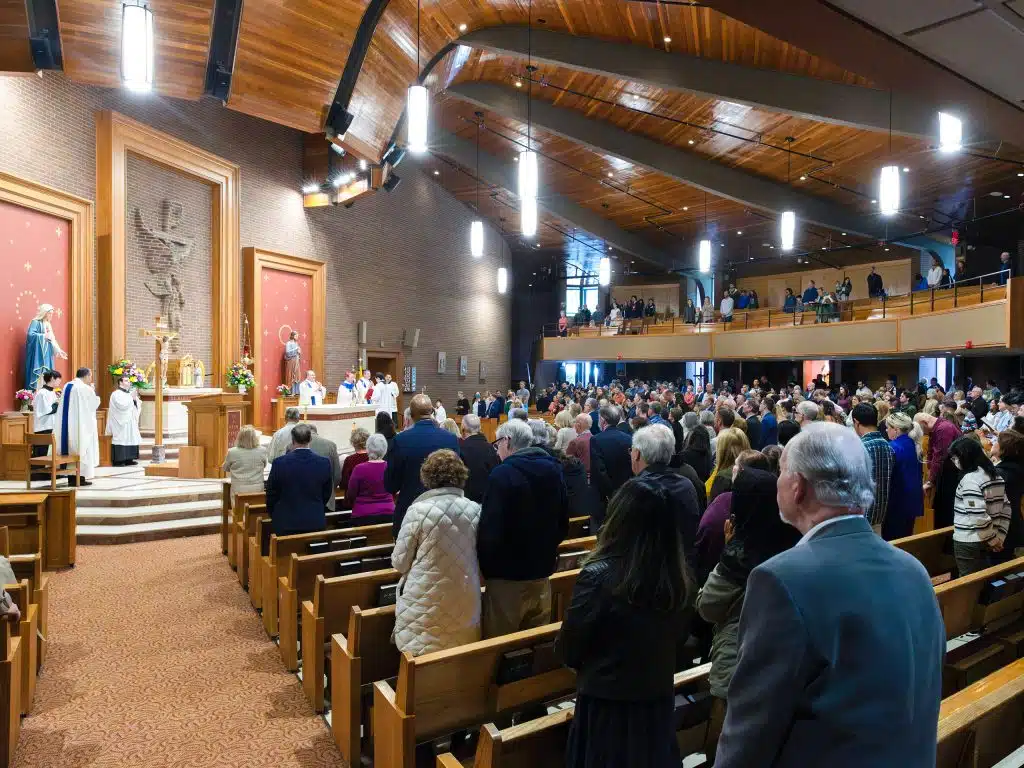Like students taking a test, we often assign God to boxes without realizing it: God will be present at church, in Mass or in class. But we can forget that Emmanuel is with us everywhere and always.
The New Testament uses the Greek word “kerygma” (meaning “proclamation”) to describe the core of the church’s teaching about Jesus’ life, death and resurrection. The good news that Jesus came to proclaim is the heart of all we do, say and teach as followers of Christ.
How might ordinary times and places point to the kerygma — leading us deeper into the mystery of the kingdom of God?
The ultimate aim of catechesis is not to know doctrine or dogma (although church teachings are essential) but to come to know the person of Jesus Christ. This relationship is what transforms our lives.
How can everyday encounters teach us about Jesus? Where and when can we speak about faith with the young people in our lives?
— In the car
My mother always said that teenagers open up at night, in the car, when they don’t have to look at you. Wiser words were never spoken (and echoed from her daughter, too).
Fielding big questions from the back seat can turn our family cars into catechesis on the go. Try praying when you see a racing ambulance, pass an accident or drive by a cemetery to put your faith into action together. Jesus often taught his disciples on the road, which helped to keep them on the way.
— At night
Kids often let down their guard at night, when they feel safe in the quiet. It’s not just a bedtime delay technique, but an ancient human instinct to ask big questions in the dark like our ancestors around the campfire.
Whether you share a bedtime story with a young child or let your teenager open up about what’s on their mind, nighttime can connect us on a deeper level. How might evenings offer your family the chance to tell stories of faith or pray together?
— After a loss
After a hard game or a deep grief, adults need to help children put their losses into perspective. We do this when kids don’t make the team or the cast, but we also do it each time life doesn’t go their way, coaching and encouraging them to keep going.
If we practice praying through smaller disappointments, we build up stronger instincts to turn to God when bigger challenges, conflicts or crises arise.
— After a win
Isn’t it ironic that we often pray more when life is harder? Cultivating habits of praise and thanksgiving when things go well — a big win at school or a small victory on the field — can help us celebrate life’s joys with God, too.
Giving thanks is not just a gratitude practice but a path to humility: We learn not to take the credit when things go right or blame others when they go wrong. The next time your child brings home good news, remember to thank God first.
— Over dinner
Our Catholic faith is sacramental and eucharistic, which is another way of saying we love to feast. The celebration of Mass gathers us around the table of the Lord who ate with sinners and saints alike. What parent doesn’t need to remember this motley crew each time we sit down to dine with our beloved children?
Whether you pray a quick grace or take turns sharing where you saw God that day, let a renewal of your mealtime prayers bring your family closer together and closer to God.
The kerygma is like a kernel: a seed of God’s word that we can help grow each day. Where might you seek the good news in your own life?
Fanucci is a writer, speaker and author of several books including “Everyday Sacrament: The Messy Grace of Parenting.” Her work can be found at laurakellyfanucci.com.



